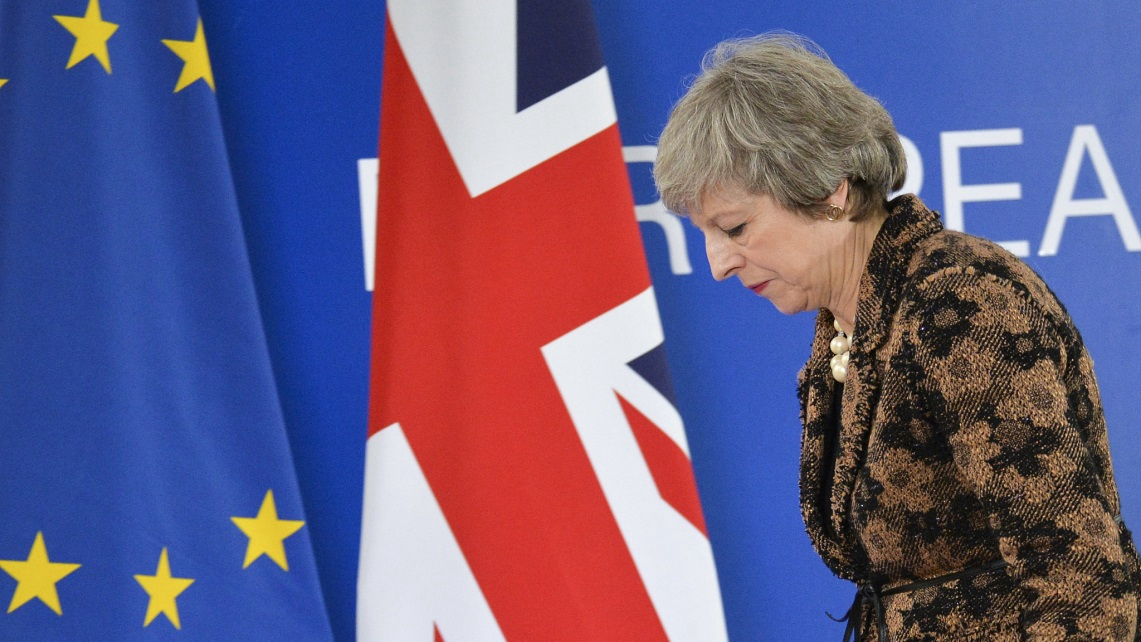Few leaders have a year without a setback – but not many get knocked down as regularly as Theresa May has in 2018.
The British prime minister has been defeated and defeated again. "May's worst week since the last" has become a cliché. Yet when many would have stepped aside, she has persevered with a grim determination that has made her admired if not loved.
In a mid-December Opinium Research survey she scored her highest rating since becoming prime minister, with 47 percent of voters agreeing she is “brave and sticks to her principles.”
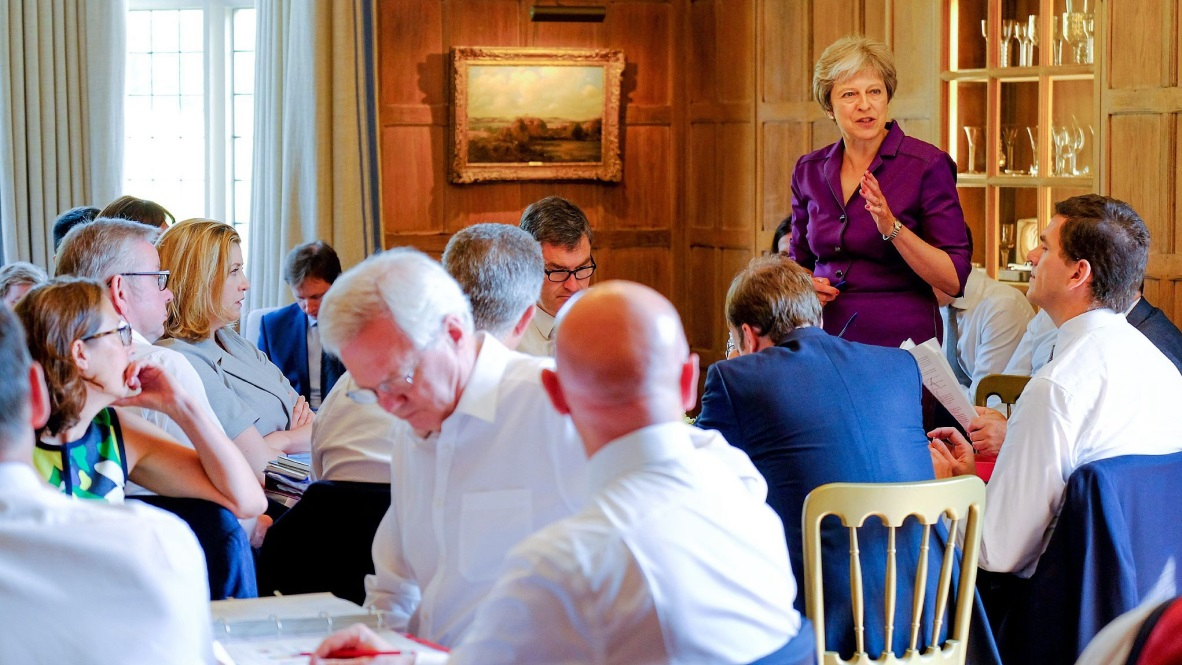
UK Prime Minister Theresa May speaks to members of her cabinet about her Brexit plan at Chequers, near Aylesbury, Britain, July 26, 2018. /VCG Photo
UK Prime Minister Theresa May speaks to members of her cabinet about her Brexit plan at Chequers, near Aylesbury, Britain, July 26, 2018. /VCG Photo
On taking over the top job from David Cameron in July 2016, May made an impassioned address in Downing Street on social justice. She treasures those words – she reportedly has quotations from the speech framed on her office wall – but she has had little chance to deliver on them.
Important domestic policies have become secondary, to the extent that a cross-party group of MPs warned in December that Brexit is “sucking the life” out of the government.
May is destined to be remembered as the "Brexit prime minister."
The issue has dominated political debate in the UK and consumed her premiership, with a lack of consensus, party disunity and resignations culminating in a chaotic deadlock at the end of 2018.
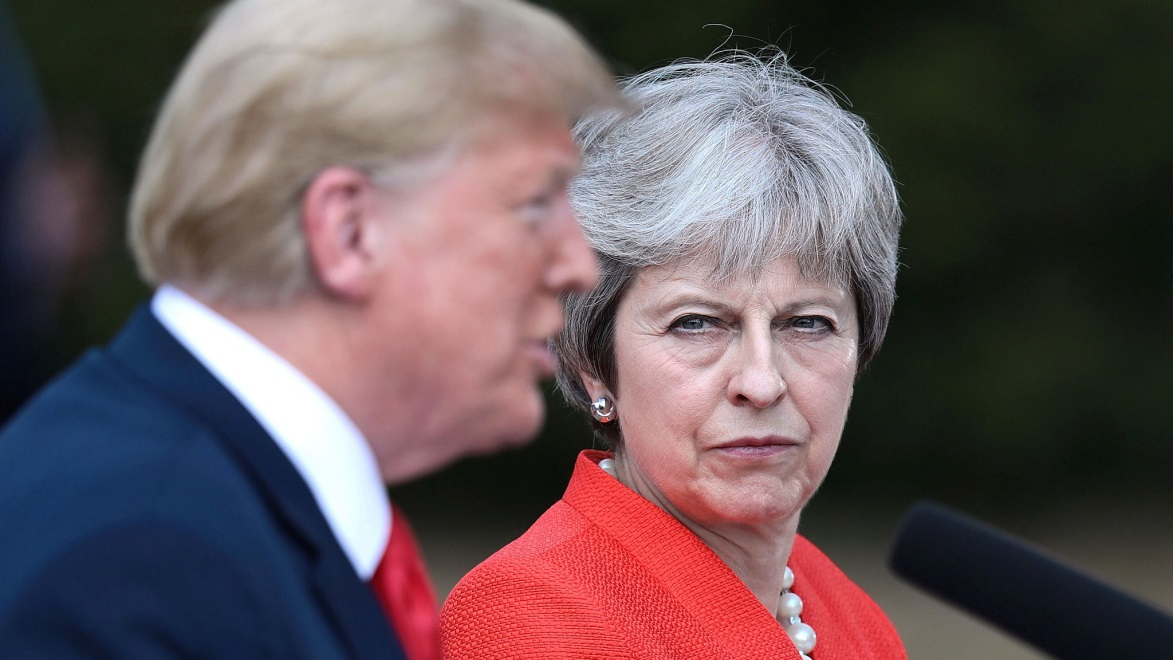
U.S. President Donald Trump holds a joint news conference with UK Prime Minister Theresa May at Chequers, near Aylesbury, Britain, July 13, 2018. /VCG Photo
U.S. President Donald Trump holds a joint news conference with UK Prime Minister Theresa May at Chequers, near Aylesbury, Britain, July 13, 2018. /VCG Photo
In the days after finally landing on her "Chequers plan" for Brexit in July, both the country's top diplomat – Boris Johnson – and the man charged with guiding Britain out of the EU – David Davis – resigned in protest.
Then followed an icy meeting with Donald Trump, who, on his first official visit to the UK as U.S. president, promptly criticized May's Brexit strategy.
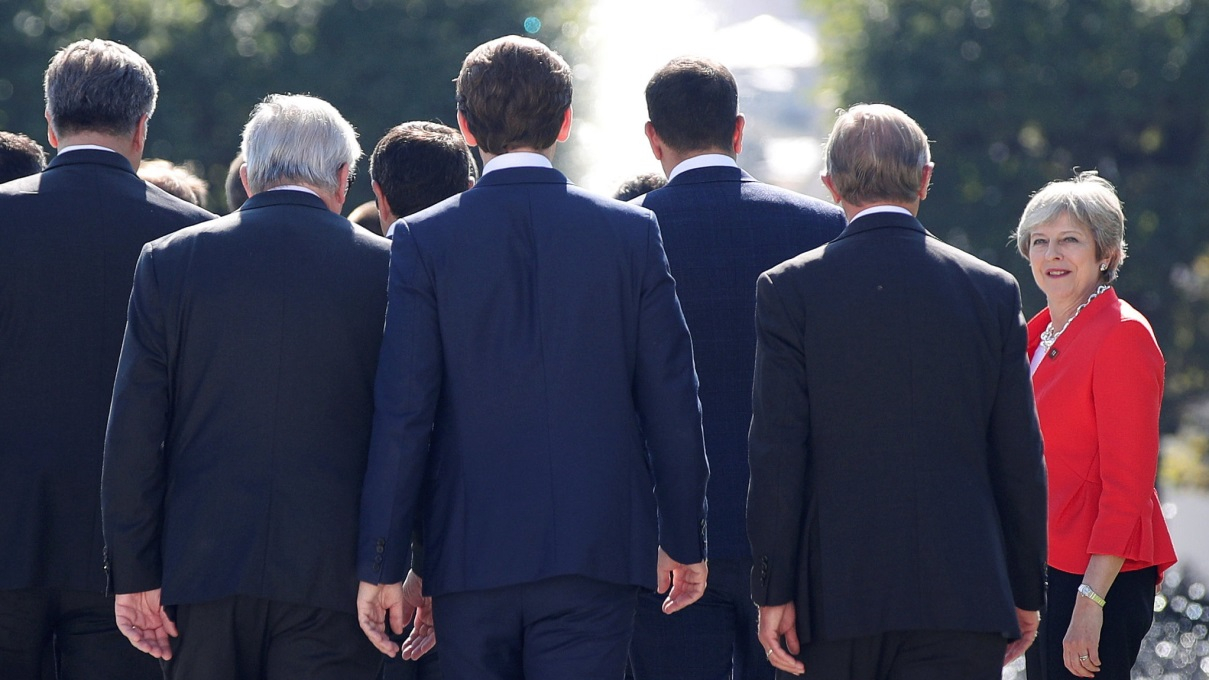
UK Prime Minister Theresa May arrives for a family photo during an EU summit in Salzburg, Austria, September 20, 2018. /VCG Photo
UK Prime Minister Theresa May arrives for a family photo during an EU summit in Salzburg, Austria, September 20, 2018. /VCG Photo
May
dusted herself off and in September headed to the Austrian city of Salzburg to
sell her plan to the EU27 – it was firmly rejected, factions of her own
Conservative Party rejoiced and speculation of a leadership challenge grew.
Chumbawamba's
"I get knocked down, but I get up again" might have been a more appropriate
choice than Abba's "Dancing Queen" when May danced on stage at the
Conservative Party conference in October, but without credible alternative
leaders she survived the meeting and pressed ahead with trying to sell her
Brexit plan.
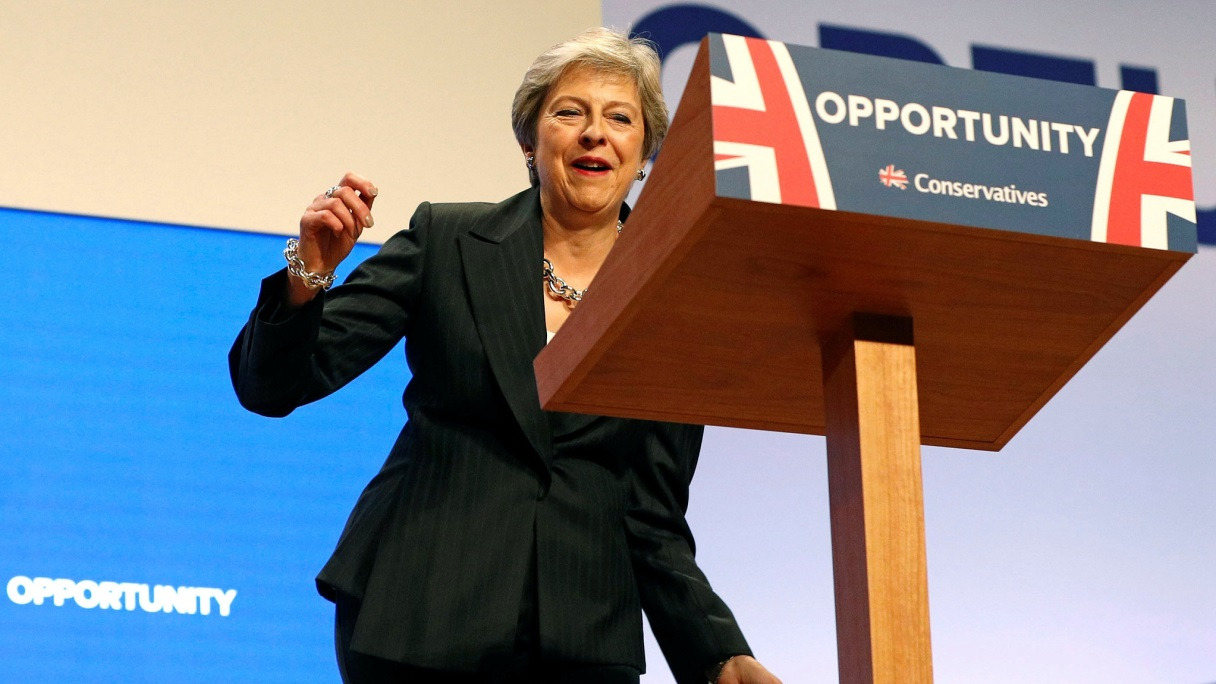
UK Prime Minister Theresa May arrives on stage dancing to Abba's 'Dancing Queen' at the Conservative Party Conference in Birmingham, Britain, October 3, 2018. /VCG Photo
UK Prime Minister Theresa May arrives on stage dancing to Abba's 'Dancing Queen' at the Conservative Party Conference in Birmingham, Britain, October 3, 2018. /VCG Photo
Fast-forward to November, May finally struck a deal on Britain's departure with the EU. After presenting it to her Cabinet, two members resigned and a plan to put it to a vote was cancelled when it became clear it would be comprehensively defeated.
May has been regarded as, above all, working dutifully in the national interest, putting country above self. Her decision to delay the vote damaged that image: it was regarded by many as a nakedly political move to save her job.
A subsequent leadership challenge failed, but with 117 of 315 Conservatives backing a no confidence vote in her, the loss of authority was clear. Looking for support in Brussels the day after surviving the attempt to topple her, EU leaders refused to reopen the Brexit agreement.
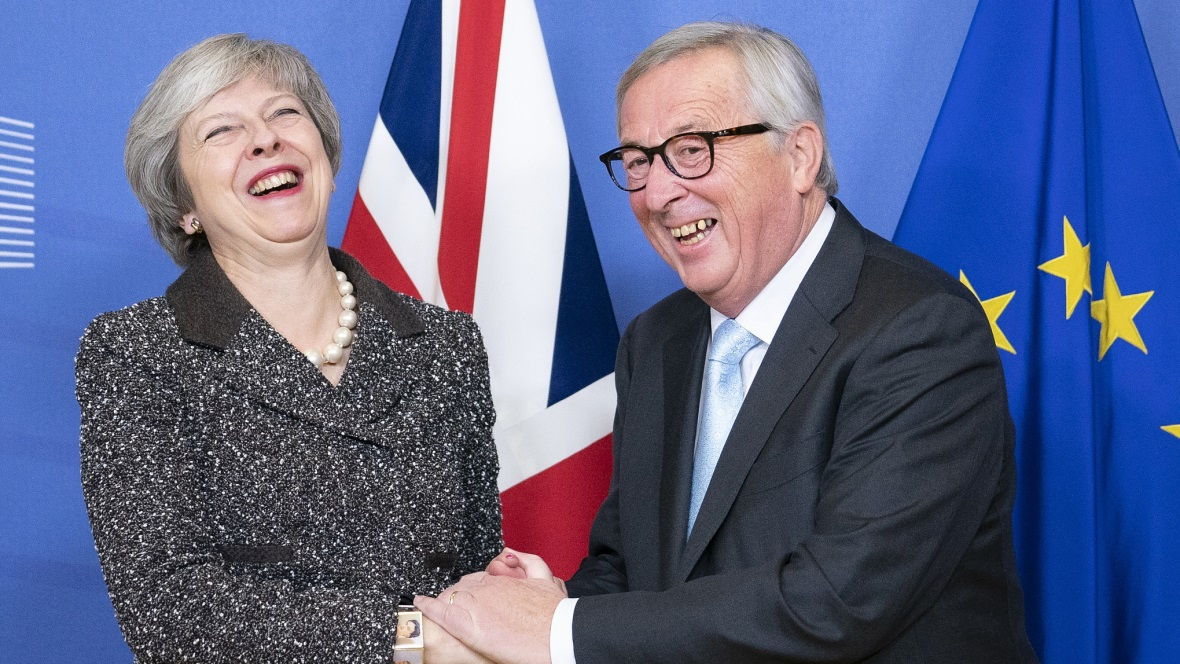
UK Prime Minister Theresa May and Jean-Claude Juncker, president of the European Commission, shake hands in Brussels, Belgium, December 11, 2018. /VCG Photo
UK Prime Minister Theresa May and Jean-Claude Juncker, president of the European Commission, shake hands in Brussels, Belgium, December 11, 2018. /VCG Photo
Predicting the future for May really means: what next for Brexit?
The prime minister has deferred the big vote until 2019 and is now engaged in a high stakes strategy, ramping up the prospects of a "no deal" – which the Bank of England warns could lead to an eight percent drop in GDP next year – and sticking by her agreement with the EU.
The odds are against May, but she's bounced back so many times it's impossible to rule out her plan succeeding.
If it works – if enough moderate MPs take fright at the prospects of "no deal" that they back her – she'll likely move on to the next stage of negotiations as leader, despite misgivings of her party.
If May's strategy fails – if her plan is rejected and there's a "no deal" exit, a second referendum, or even a cancelled Brexit – it'll be tough for even this most persistent of leaders to continue.
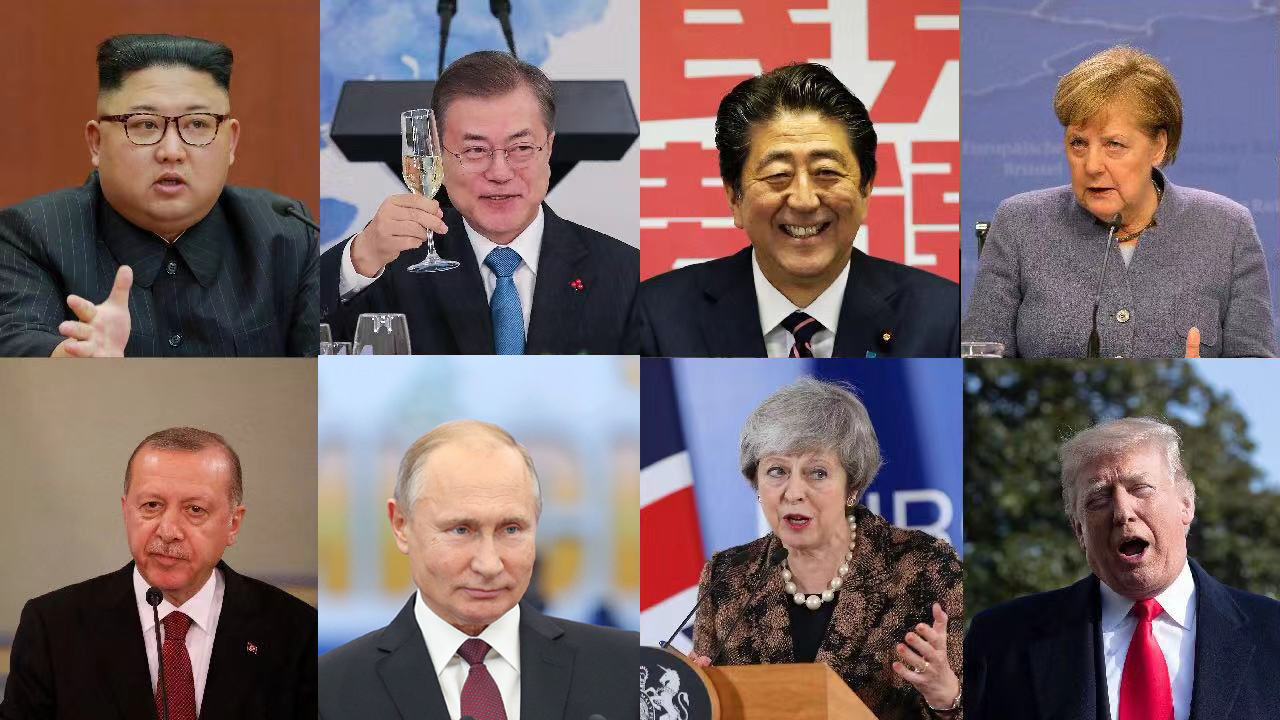
(top left to right) Kim Jong Un, Moon Jae-in, Shinzo Abe, Angela Merkel; (bottom left to right) Recep Tayyip Erdogan, Vladimir Putin, Theresa May, Donald Trump
(top left to right) Kim Jong Un, Moon Jae-in, Shinzo Abe, Angela Merkel; (bottom left to right) Recep Tayyip Erdogan, Vladimir Putin, Theresa May, Donald Trump
This is the seventh article of our "World Leaders" series, which takes a look at eight people who shaped the global political discourse in 2018. These figures dominated the year's headlines through high-profile appearances and maneuvering, forging new relationships and severing old ones. We've published the profiles of Kim Jong Un, Moon Jae-in, Shinzo Abe, Angela Merkel, Recep Tayyip Erdogan, and Vladimir Putin over the past days. Tomorrow we'll focus on the last one in our series – Donald Trump, who has shaken the world order with his unusual leadership. Stay with us.
Stories in this series:

